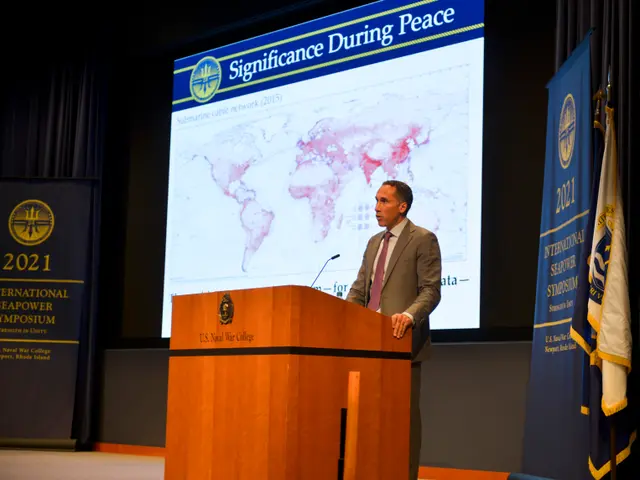International Treaty on the Prevention and Management of Plastic Pollution
The recent UN conference in Geneva aimed to tackle the growing issue of catastrophic plastic pollution, but efforts may fall short without a final push before the deadline. The last-minute draft agreement presented at the conference has caused shock among dozens of countries, as it removed most ambitious targets and requirements for governments.
The treaty, if adopted, would cover the entire lifecycle of plastic, from production to design to disposal. More than 120 countries support the demand to limit the use and production of plastic to a sustainable level, aiming to phase out certain single-use plastic products. However, the draft agreement has been deemed unacceptable by numerous government representatives, including the representative of Britain.
Oil-producing countries view production limits as a red line, fearing a loss of business. The continuous addition of plastic, predominantly made from oil, is causing harm to oceans, ecosystems, and wildlife, and poses a threat to human health. Minute particles of plastic are found in organs and even the brain, and nano- and microplastic particles can impair the immune system, accumulate in arteries, and promote inflammation.
Despite their opposition to production limits, even oil producer Saudi Arabia has criticized the text of the draft agreement. Jochen Flasbarth, State Secretary in the German Federal Ministry for the Environment, stated that the problem of international plastic pollution is colossal and the quantities produced are not sustainable. He emphasized the need for a balanced approach that ensures ambitious goals for reducing plastic waste while accommodating concerns over production caps.
Critics argue that the new draft agreement is merely a waste management plan, not an ambitious solution. To move forward, the international community could engage in inclusive dialogue that acknowledges the economic interests of oil-producing countries while emphasizing shared responsibility for pollution reduction. Establishing gradual, phased production limits linked to measurable milestones could provide time for industry adaptation.
Integrating mandatory design standards for recyclability and banning problematic plastics would complement production management. A financial support mechanism could aid developing countries in transitioning to circular economy practices, funded by financial contributions or fees on plastic producers. Including chemical safety standards to address toxic additives that exacerbate pollution impacts is also crucial.
Promoting transparency and curbing fossil fuel/industry lobbying influence would ensure negotiations prioritize environmental goals over narrow economic interests. This balanced approach could respect the "red lines" of oil-producing nations while aligning with the ambitions of the majority to reduce plastic waste, pollution, and greenhouse gas emissions tied to plastic production. Without production limits, the treaty risks being weak and ineffective; without accommodating oil-producing countries' concerns, negotiations risk deadlock. A negotiated middle ground emphasizing accountability, design innovation, and financial mechanisms is critical for a successful outcome.
[1] The Guardian
[2] BBC News
[3] Nature
[4] The New York Times
[5] Greenpeace International
Read also:
- Germany's three-month tenure under Merz's administration feels significantly extended
- Governing body allegedly persists in enjoying vacation time amidst Spain's highest danger level due to fires, claims Feijóo
- United Nations Human Rights Evaluation, Session 45: United Kingdom's Statement Regarding Mauritius' Human Rights Record
- Hurricane-potential storm Erin forms, poised to become the first hurricane in the Atlantic Ocean this year.








